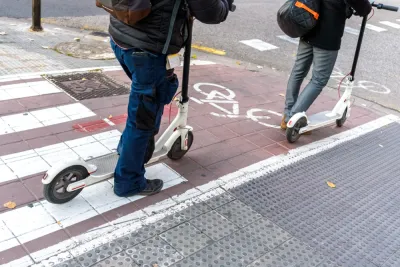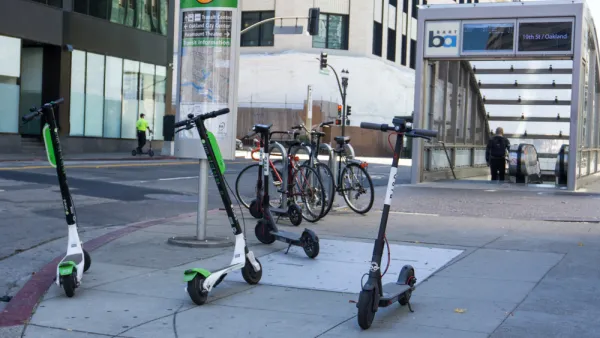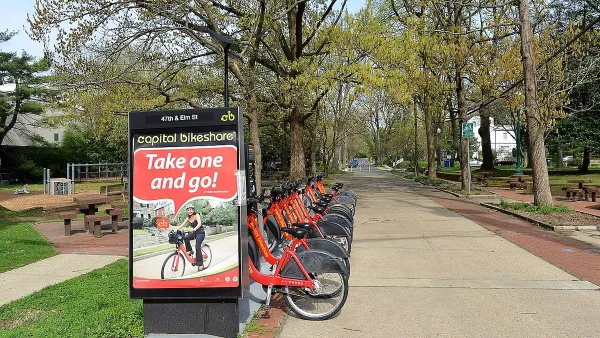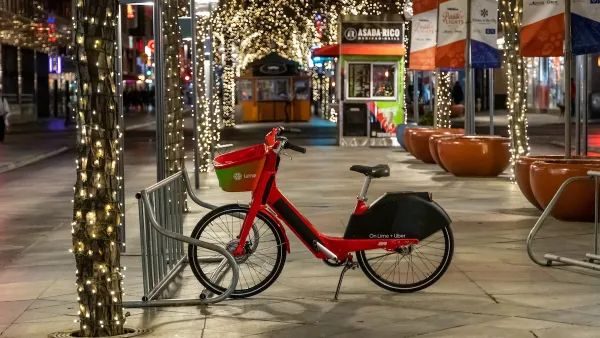Operators are pushing back against new proposed rules that some say could 'kneecap' the District's micromobility industry.

As the District of Columbia's Department of Transportation plans to cap the number of scooter and bike share operators in the District and implement a series of new regulations, Kea Wilson reports that some advocates wonder "why micromobility providers are again being held to higher standards than are drivers, automakers, and car-related businesses." In an open letter to DDOT, the District's current micromobility operators argue that the new rules could push them out of the market just as demand for their services surges.
Under the new process, companies would be assessed on a 198-point rubric that gauges the companies’ commitment to safety, equitable access, and fair labor practices, among a list of other sky-high standards that some argue would more logically apply to car-based enterprises.
App-taxi operators such as Uber do not have to pass such extensive tests in order to operate on Washington roads and can deploy as many drivers as they wish, despite such companies’ record of contributing to congestion, harmful emissions, and more. Private vehicle owners can also register as many vehicles as they like throughout the U.S. provided they meet safety and emissions requirements.
The operators "already comply with a raft of city policies, including fleets caps of 820 to 2,500 vehicles," and want DDOT "to extend the current micromobility permits for an additional year."
FULL STORY: How D.C. Might Kneecap Its Micromobility Revolution

National Parks Layoffs Will Cause Communities to Lose Billions
Thousands of essential park workers were laid off this week, just before the busy spring break season.

Retro-silient?: America’s First “Eco-burb,” The Woodlands Turns 50
A master-planned community north of Houston offers lessons on green infrastructure and resilient design, but falls short of its founder’s lofty affordability and walkability goals.

Delivering for America Plan Will Downgrade Mail Service in at Least 49.5 Percent of Zip Codes
Republican and Democrat lawmakers criticize the plan for its disproportionate negative impact on rural communities.

Test News Post 1
This is a summary

Test News Headline 46
Test for the image on the front page.

Balancing Bombs and Butterflies: How the National Guard Protects a Rare Species
The National Guard at Fort Indiantown Gap uses GIS technology and land management strategies to balance military training with conservation efforts, ensuring the survival of the rare eastern regal fritillary butterfly.
Urban Design for Planners 1: Software Tools
This six-course series explores essential urban design concepts using open source software and equips planners with the tools they need to participate fully in the urban design process.
Planning for Universal Design
Learn the tools for implementing Universal Design in planning regulations.
EMC Planning Group, Inc.
Planetizen
Planetizen
Mpact (formerly Rail~Volution)
Great Falls Development Authority, Inc.
HUDs Office of Policy Development and Research
NYU Wagner Graduate School of Public Service





























